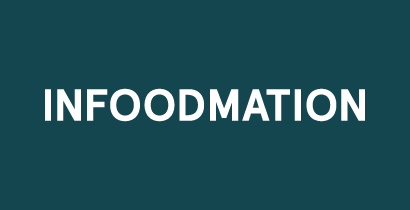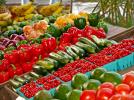
Horizon Europe Infoodmation Project: Optimizing information and communication about food towards healthier and more sustainable dietary patterns
- Type Project
- Status Signed
- Execution 2025 -2027
- Assigned Budget 2.998.444,32 €
- Scope Europeo
- Main source of financing Horizon Europe 2021-2027
- Project website Proyecto Infoodmation
Food choices are influenced by a combination of factors, such as socioeconomic status, age, and gender. Adding to the complexity, traditional and social media, along with marketing, significantly influence dietary habits. However, how these sources of information influence food choices is still poorly understood. This knowledge gap limits efforts to promote healthy and sustainable diets.
In this context, the EU-funded Infoodmation project will study how different messages interact with tools and channels. It will analyze communication approaches in the private sector, governments, and civil society, with a focus on vulnerable groups. The findings will inform best practices, policy recommendations, and an open-access hub to help food system actors promote healthier and more sustainable diets.
Food choices are determined by a wide range of factors (socioeconomic status, gender, age, etc.). In addition, mainstream media, social media, and marketing play an important role in food choices, but how they do so is not well understood, nor is this knowledge sufficiently applied to promote healthy and sustainable diets and discourage less healthy and less sustainable ones. Infoodmation aims to fill these gaps by increasing knowledge of how these sources of food information influence food consumption and using this knowledge to develop best practices for food system actors, policies, and regulations to support healthier and more sustainable dietary patterns.
The project will identify approaches, tools, channels, techniques, and messages used by the private sector, governments, and civil society (key actors in Infoodmation) to communicate about food (also focusing on vulnerable groups, such as children, adolescents, and people of low socioeconomic status). These effects will be assessed, along with the effectiveness of parental controls, the impact of negative versus positive messages, and the effects and spread of misinformation (and how to counter it). EU legislation related to food information will be evaluated in light of these findings, as will policy measures at the national, regional, and local levels in EU Member States.
These analyses will result in a compendium of best practices, policy briefs, and recommendations for responsible trade strategies targeting different key actors, supported by capacity-building tools and an open-access knowledge hub for findings, recommendations, and materials on food communication. Ongoing consultation with food system actors will ensure that the recommendations are relevant, fair, feasible, and adaptable to different contexts. Infoodmation is made up of a multidisciplinary consortium with an extensive network of key actors, multi-stakeholder initiatives, and EU-funded projects related to healthy and sustainable food.
- EUROPEAN FOOD INFORMATION COUNCIL (EUFIC)







